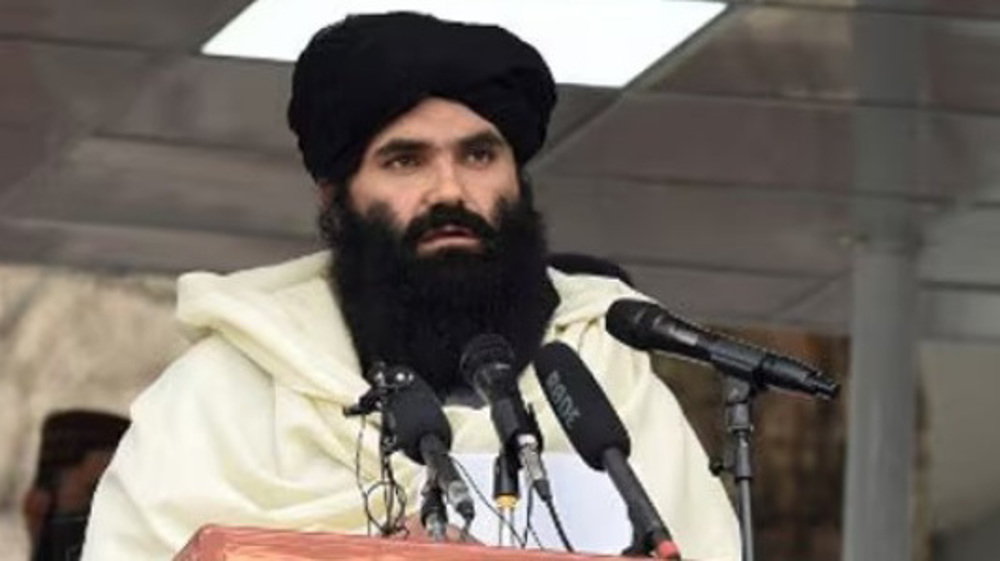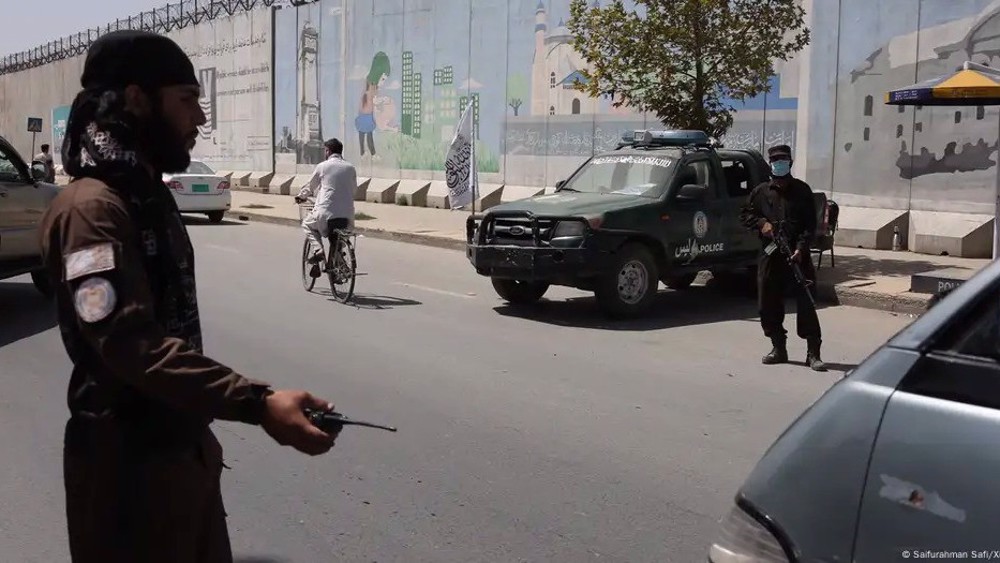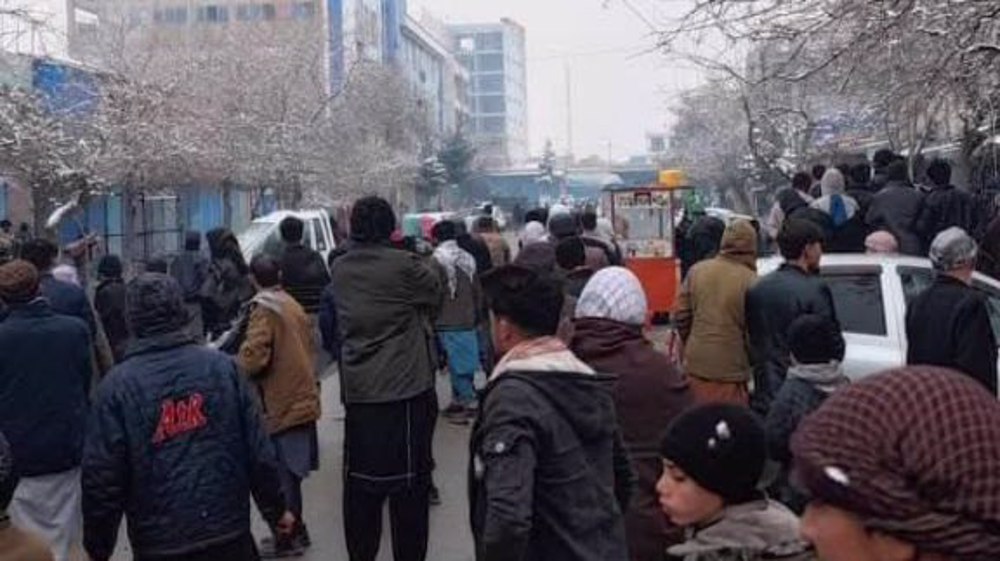Pakistan’s Khan lands in Kabul to discuss bilateral ties, militancy
Pakistan's Prime Minister Imran Khan has arrived in Kabul where he is expected to discuss bilateral ties and militancy, which is plaguing the both counties.
Khan landed in Kabul on Thursday for his first visit to Pakistan’s northwestern neighbor, where he will hold meetings with President Ashraf Ghani and other senior Afghan officials.
Khan is accompanied by Foreign Minister Shah Mahmood Qureshi and his adviser on commerce and investment, Razzaq Dawood.
A Pakistani statement said the focus of the talks would be further deepening of "the fraternal bilateral relations between Pakistan and Afghanistan, the Afghan peace process, and regional economic development and connectivity".
A spokesman for the Afghan presidential palace, Dawa Khan Minapal, said the main purpose of the visit is to deepen bilateral trade and ties, but the fight against militancy in the region will also be at the top of the agenda.
A source in the Afghan presidential palace said peace talks between Afghan government negotiators and the Afghan Taliban in the Qatari capital Doha will also be in focus during Khan’s visit.
"The focus will be mainly on the peace process but we won’t keep our hopes high," the unnamed source said.
This is Khan's first visit to Afghanistan since assuming office over two years ago.
It is the highest profile visit by a Pakistani official to Kabul since the peace talks began between the Taliban and the Afghan government in Doha.
Pakistan's role in the peace talks has been crucial, according to Washington, particularly given its influence over the Taliban leadership, though Islamabad says that influence has waned over the years.
Washington's special representative for Afghan peace, Zalmay Khalilzad, has made a number of trips to Islamabad to discuss the peace process.
The Taliban militant group says it expects US President-elect Joe Biden to abide by a deal reached with outgoing President Donald Trump, who promised to withdraw American troops from Afghanistan.
Khan: Pakistan will do whatever possible to reduce violence
Pakistan's prime minister told reporters outside Afghanistan's presidential palace after meeting with Afghan President Ashraf Ghani that his country will do anything to reduce the escalation of violence between the warring sides in neighboring Afghanistan.
"We notice with concern that the level of violence despite the talks in Qatar ... is rising," Khan said, adding, "Pakistan will do everything, whatever is possible, we will do to help reduce this violence and in fact move towards a ceasefire."
Khan added that it was Pakistan that first persuaded the Taliban to talk to Washington in 2018 for negotiations that eventually yielded a withdrawal deal for all foreign forces.
He also highlighted Islamabad's efforts made to help start the peace talks in Doha, saying, "We the people and government of Pakistan have only one concern, and that concern is ... that we want peace (in Afghanistan)."
The Trump administration signed the deal in February. The agreement was also supposed to lay the groundwork for a peace process between the Taliban and the Afghan government. The recent uptick in violence has only made that prospect unlikely.
Violence continues in Afghanistan even as Kabul negotiators and the Taliban have been meeting in Qatar to reach a peace deal. There has been little progress in those meetings since September 12.
Both sides have routinely accused each other of upping hostilities and killing civilians.
Scattered calls to boycott the ongoing peace talks have risen following recent back-to-back attacks on education centers in Kabul claimed by the Daesh terrorist group. Some in the government insist they were carried out by the Taliban which deny any role.
Official data shows Taliban bombings and other assaults have increased 70 percent since the militant group inked a peace deal with the United States in February.
The US invaded Afghanistan and toppled the Taliban-run government in 2001 under the pretext of fighting terrorism following the September 11 attacks in New York.
Afghanistan has been gripped by insecurity since the US and its allies invaded the country as part of Washington’s so-called ‘war on terror’ in 2001. Many parts of the country remain plagued by militancy despite the presence of US-led foreign troops.
American forces have since remained bogged down in Afghanistan through the presidencies of George W. Bush, Barack Obama, and now, Trump.
In addition, mistrust has cloaked relations between Afghanistan and Pakistan. The two neighbors regularly accuse each other of sheltering their enemy insurgents. Both sides, however, deny such an allegation.
Kabul blames elements inside the Pakistani spy agency Inter-Services Intelligence (ISI) for supporting Taliban militants, while Islamabad blames the Afghan government for giving refuge to militants on its side of the border. The two sides also accuse each another of not doing enough to stop militants engaging in cross-border raids.

Taliban says US has lifted $10 million reward for information on deputy chief Haqqani

Deadly bombing attack targets Taliban ministry building in Kabul

Daesh claims deadly bombing attack in northern Afghanistan
Israeli captives held in areas targeted for evacuation by the regime: Al-Qassam Brigades
VIDEO | President Yoon of South Korea impeached, dismissed
Trump tariffs led to a $2.5 trillion wipeout for the US stock markets
VIDEO | Press TV's news headlines
Lebanese reporter resigns due to Hijab ban
'War crime': Israeli strike destroys water desalination plant in Gaza
China hits back with 34% tariffs on US imports as fears of global recession rise
VIDEO | Children of a lesser god









 This makes it easy to access the Press TV website
This makes it easy to access the Press TV website